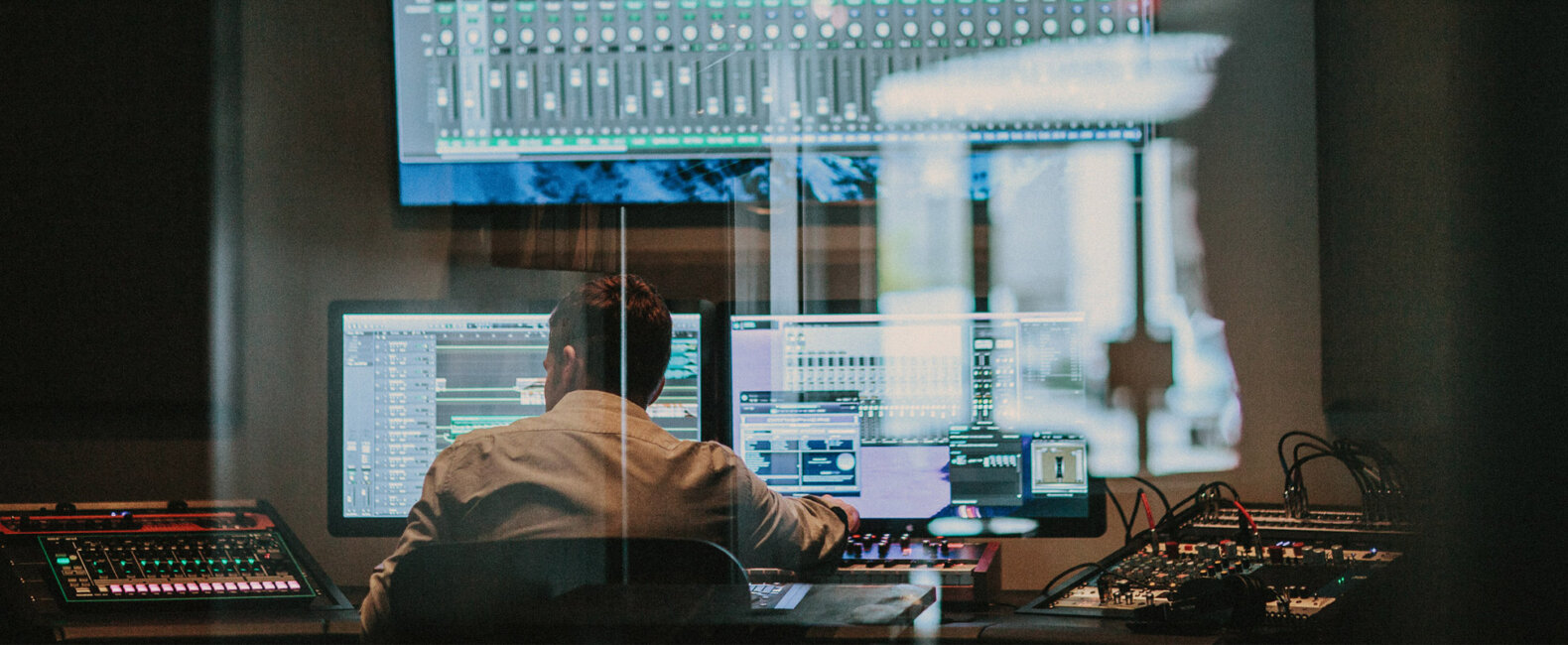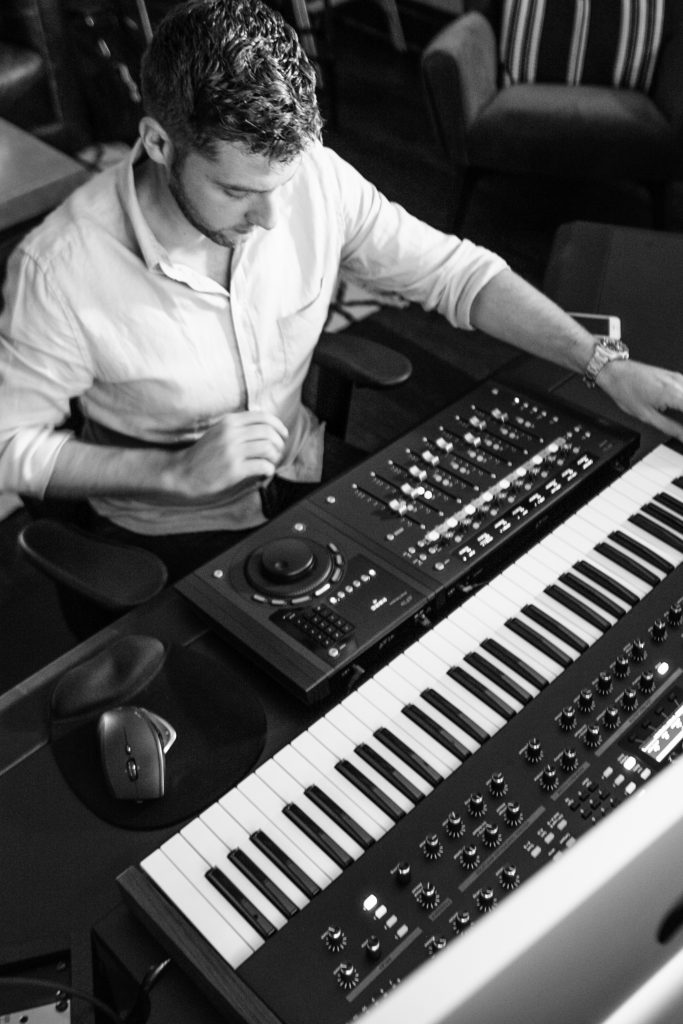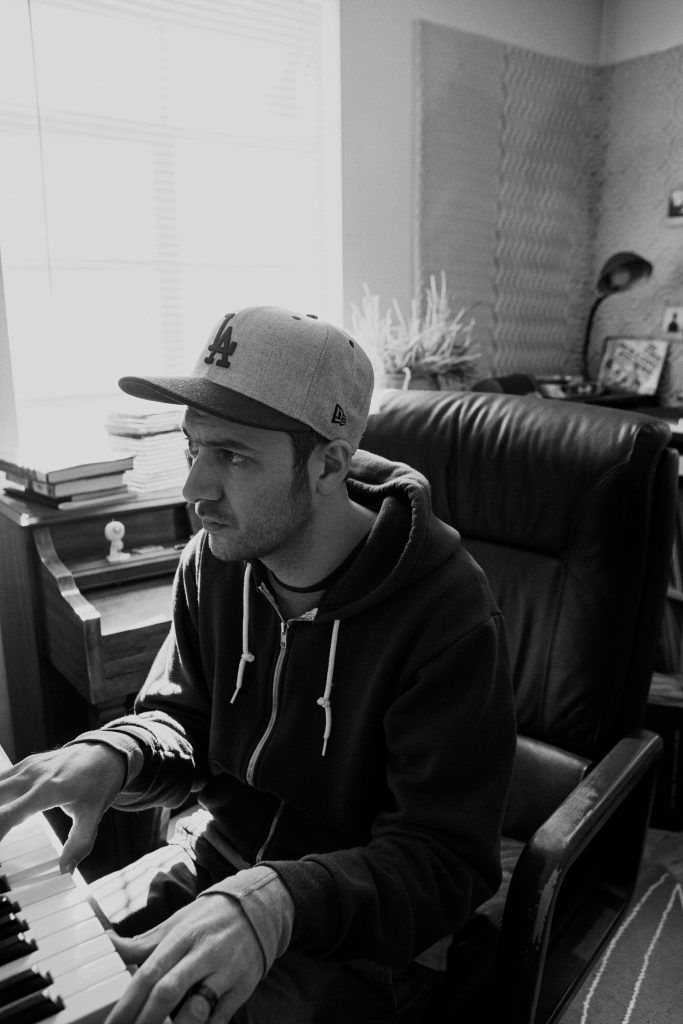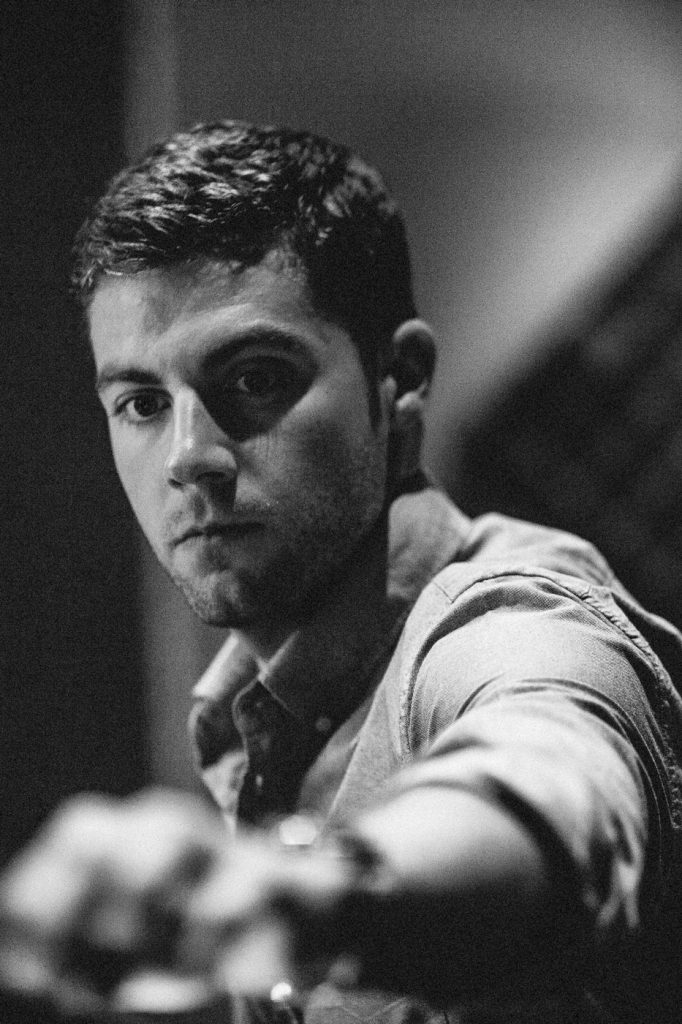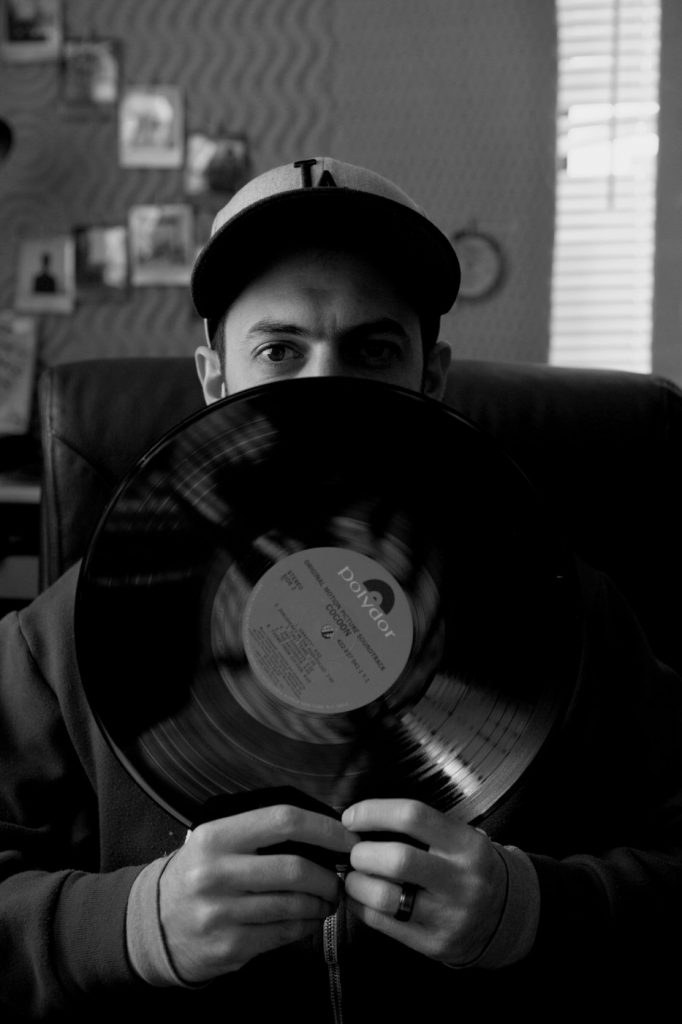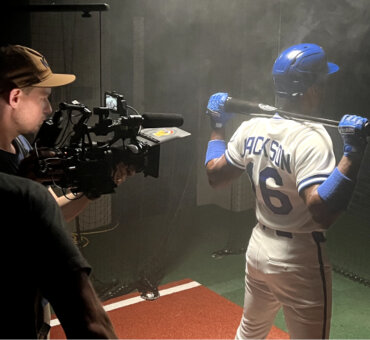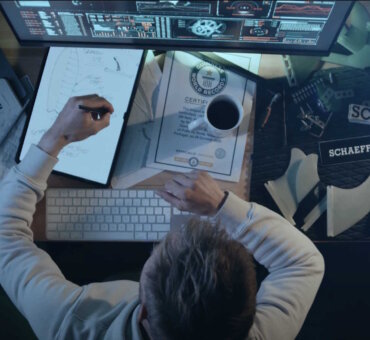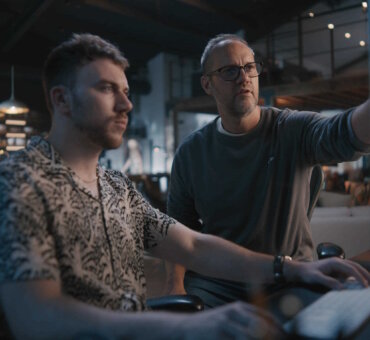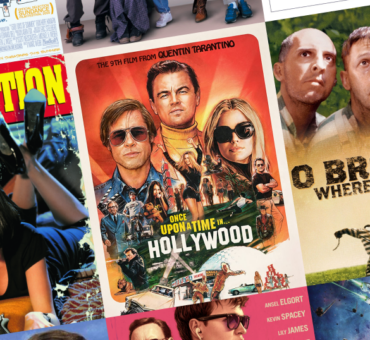It’s easier than ever to become a film composer. The tools are cheap and available, and there is no shortage of up-and-coming filmmakers who need soundtracks. But while it might be easier than ever to start making music for film, it’s as difficult as it’s always been to become great at it. And there aren’t any short cuts.
We recently talked with our friends Tony Anderson and Luke Atencio to see what advice they’d give to a young composer. Both of them have put in the years and the work to know a thing or two about what it really means to “make it” as a composer. We think you’ll like what they have to say — whether you’re a young composer or just a creative in general.
Here are Tony and Luke.

It seems like there is a new wave of young artists who are interested in becoming film composers. We thought you two might have some really good perspective for them.
TA: Totally. There’s a whole generation of younger composers catching on to the idea that, oh my goodness, cinematic music can be profitable. But the fact is, even after 15 years, Luke and I are really just starting to figure all of this out.
LA: I think what’s interesting about the industry is that it’s all relative now. This is a career with such a long timespan that even after 15 years, we’re only at the very beginning. Not one A-list composer doing major feature films in Hollywood is under the age of 50. James Newton Howard, John Williams, Alexandre Desplat — those guys are all in their 50s or older, and they’re doing some of their best work.
That’s always been my goal. My friends and family laugh at me because I’m always saying how I can’t wait to be 60 because that’s when I’ll be writing the music I really want to write. I think what’s different now, though, is people are getting started younger. They have access to the tools. And what happens is a lot of these guys have the talent, but they don’t really know how to navigate things professionally.
BRIEF HISTORY FOR A YOUNG COMPOSER
TA: Luke and I were talking recently about what it means to be a film composer — like what it meant to begin with, and what it’s starting to mean now. I think it’s a good place to start because it basically gives you an introductory history into why people do this work in the first place. Luke, you wanna give some backstory?
LA: Absolutely. In the ’30s, when they first starting applying music scores to movies, a lot of the composers working on those projects were just musicians looking for work. It was their trade. It wasn’t glamorous. I think the big thing at that time was to write concert music. So if you were writing for movies, it was because you’d failed in the concert world. John Williams started out in the United States Air Force Band before he started orchestrating stuff. He was really just a session pianist.
So the idea was never, “Wow, you can be famous and rich being a film composer!” Instead, it was, “Wow, I can earn a living doing what I love!” But there’s been a shift recently where the composers are sometimes being highlighted the same way a director would be. It’s a big shift from where we came from.
TA: Essentially more content is being made than has ever been made before in the history of the world. And more tools are available than ever before. And there’s more entitlement than ever before. And when you combine all three of those things, you don’t get art. You get “almost-art.” You get a lot of people who’ve experienced very little pain, very little loss, very little depth. You have a lot of people — and I fall into this category, by the way — who start caring more about being successful, or appearing successful, than they care about making music.
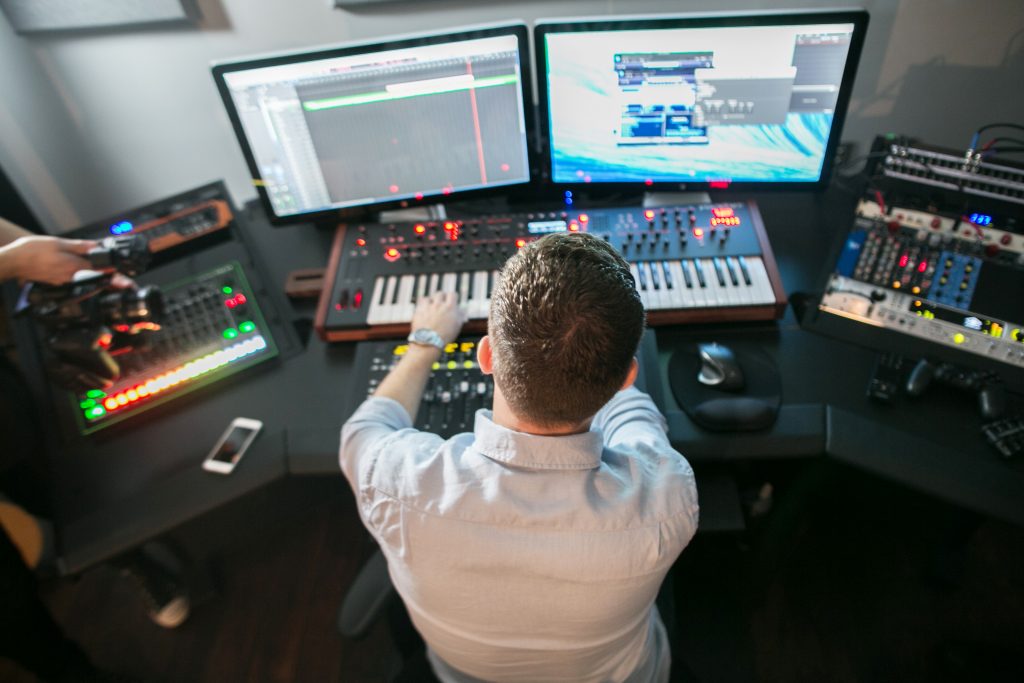
What you get is a group of people — and again, I am included in this group — who are completely obsessed with outperforming the other guy, outdoing the other guy, shamelessly stealing ideas from the other guy. Doing anything they can to get noticed so phone calls start coming and connections get made.
Why does most of the cinematic music I write these days have a one-year shelf life? Because it was written out of competition instead of rest. It was digitized rather than human. And what I’d love to do is help the group of composers who are coming up behind us stop caring about who is the loudest or who has the most SoundCloud followers, and start caring about getting back to the heart of what it means to be a composer.
LA: Becoming a composer is a lifelong pursuit of perfect notes. When you sign up for composing, you sign up for life. John Williams is in his 80s, and he’s still discovering new things. I’m hearing him do things I’ve never heard before. There’s a maturity level in his writing that you only get when you’re that age. There’s nothing you can do to accelerate maturity. You only get there with time. It’s super frustrating because you have to live through every minute and every hour to get to that point. But at the same time, it’s exciting because we’re involved in something that’s not going away. We’re involved in something we can be doing for the rest of our lives.
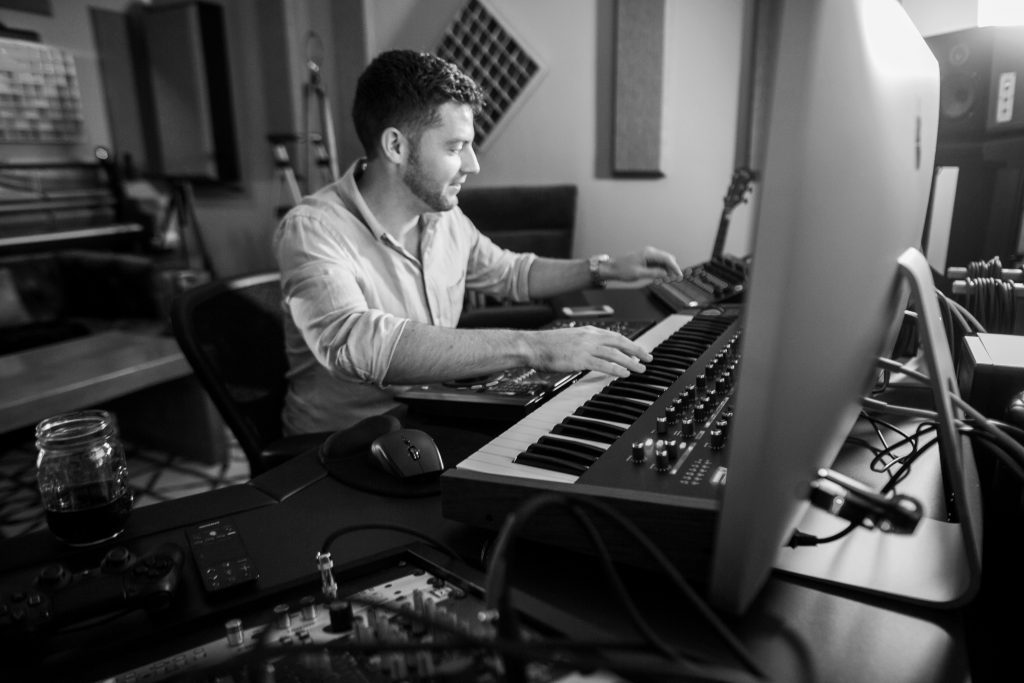
ADVICE TO A YOUNG COMPOSER
Work for Free
TA: The first thing I’d say is you have to be willing to work for free for a very long time. Most filmmakers don’t have a budget, and it’s partly because they’re doing the same thing you’re doing. The first jobs Luke and I did were not jobs with any sort of financial compensation. At all. Most of the people you’re going to get work from in those early days are people who hope something will get picked up one day. So don’t expect money.
But here’s the awesome thing about working for free: It allows you to take a lot of risks. You don’t have anybody to let down. Working for free allows you to get to know people and learn how to work with people. Let me summarize this a bit more clearly: Working for free is a litmus test. It tells you if you have what it takes to work in this industry.

Persevere
LA: I would encourage a young composer to just keep going. Work hard. Because that’s what you’re signing up for. At the very center of creating music for film are blood, sweat, and tears. And if it’s your dream to do it, then don’t ever let the trials overcome you. You just have to keep going because it doesn’t get any easier. Every time I make a song — if it’s any good, it’s due to blood, sweat, and tears. To this day I have to work really, really hard to make something good. And that never changes. Keep going. Don’t quit. If you have the drive to keep going, that’s probably all the indication you need that composing is something you’re going to stick with.
TA: You have to learn how to deal with discouragement. My first reaction is to take criticism personally. It’s like you put your soul into the piece; if someone doesn’t think it’s good, it’s like they don’t think your soul is any good. But you have to pick yourself back up and say, “I’m going to come back with something that’s going to blow his mind.”
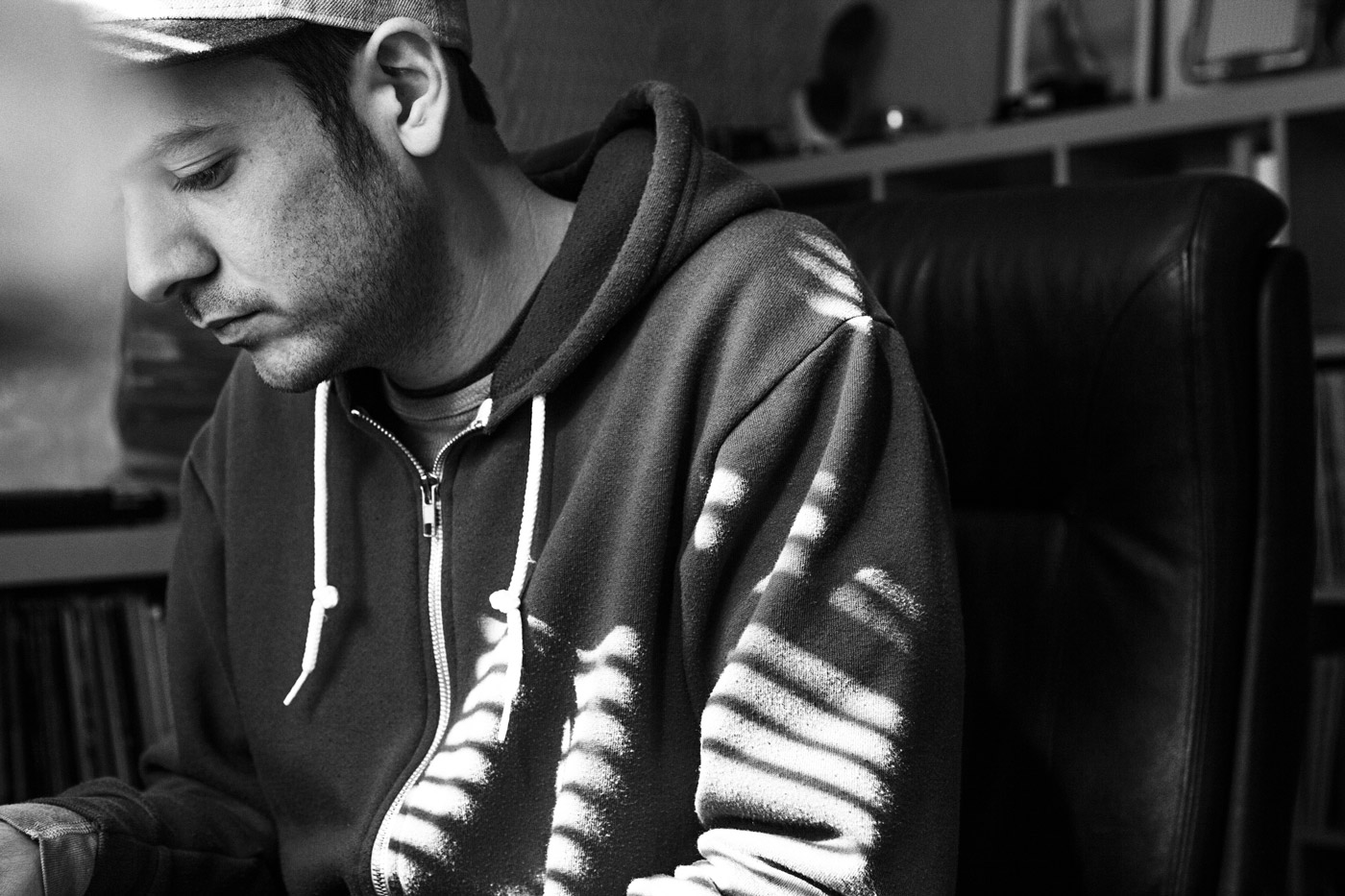
Build Relationships
TA: One big thing is to find directors with whom you can build relationships, rather than just trying to build a catalog. A catalog is a shotgun blast of, “Hey, look how many people I’ve done ad placements for!” I’ve made that mistake. But no one gives a crap. The reality is I have a relationship with two different directors. That’s it. Those are the guys who call me and say, “Hey, I have a story I’d like to tell. Can you write music for it?” Those are the relationships that will carry you through economic recessions, and they will carry you through times when you’re not getting ad placements. The relational component is huge.
LA: And that relational component applies to your relationships with other musicians and composers too. I’m super grateful for my relationship with Tony. Rather than being threatened by each other, we’ve been able to help each other, give each other feedback. It’s just discovering that, wow, we don’t have to be in competition. We can be unified and it doesn’t take anything away from either one of us. In fact, it’s doing the opposite: It’s multiplying the good.
TA: I totally agree. And that actually dovetails into another point…

Hire Real-Life Musicians
TA: The cool thing about working with other composers and musicians is that it gives a natural flavor to the track. So my advice is really simple: Pay out of pocket for your friends to play on your tracks. Why would you do that? First of all, you’re bringing the actual, physical DNA of someone else’s music and embedding it into your music. Suddenly your music is going to get more lively, more exciting. Second, music is meant to be a communal thing — real life, face to face. By bringing other musicians into your music, you’re helping create a community.
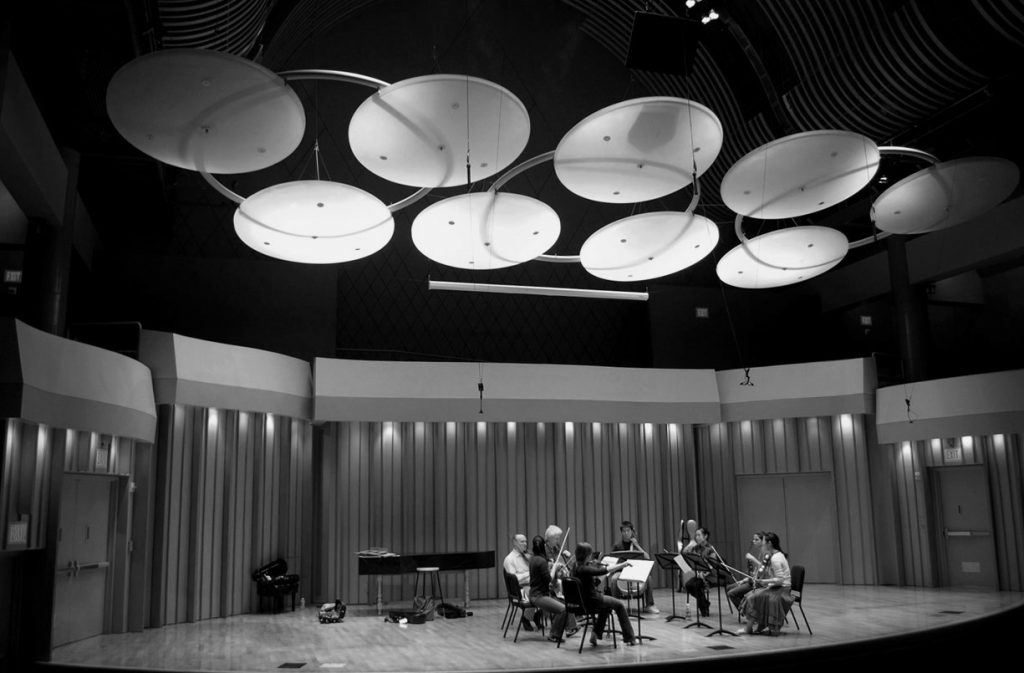
Beware of Self-Promotion
TA: I’m testing this advice for myself right now, so it’s more of a challenge than anything else. It’s a challenge that came from my friend Eliot Rausch. He said, “What if we stop promoting ourselves and instead just make good art?” Can we go without promoting ourselves on SoundCloud and Instagram and Facebook and Twitter? When you take away all of that self-promotion, are you still a composer? And are you still a composer who loves what he’s doing? Are you a person who is really passionate about music, or are you left with what I’ve become: a guy who’s really sad that he doesn’t have a platform to speak on?
So my advice to a young composer would be this: Consider what type of musician or composer you’d be without your self-promotion. Does that version of you exist? If it doesn’t, then you probably don’t have music that’s worth linking up with someone’s film. What you have is a brand that you’re promoting — yourself.

What I worry about is everything starting to sound the same and look the same. I scroll down the Vimeo home page and everything looks identical. But imitation is not the sincerest form of flattery; it’s the sincerest form of insecurity. When I steal, when people steal, it’s because we believe our work is not worth sharing — but of course that’s where we’re wrong.
The thing that’s becoming more and more clear to me is that good music — music that really moves people — is not created in the public eye. It’s created in the quiet. It’s created in solitude. To create something that sounds good, you need an absence of sound. To create music that moves people, you have to be motionless. My hope for the next generation of composers is that they will be emotionally and relationally connected people who create music out of joy — together.
We believe Tony and Luke’s advice is applicable to anyone making anything these days. Sure, the tools and the distribution have never been easier or cheaper or more available, but becoming a true master of your craft takes decade after decade of dedication. We’re stoked about the next generation of composers coming up through the ranks — and we can’t wait to hear the music you guys make.















































































